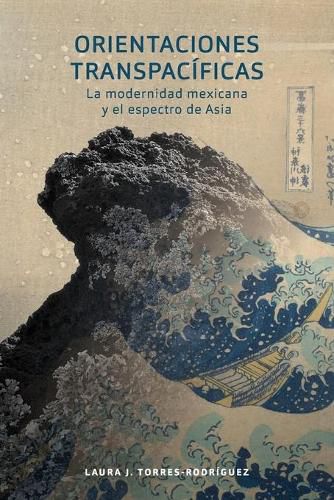Readings Newsletter
Become a Readings Member to make your shopping experience even easier.
Sign in or sign up for free!
You’re not far away from qualifying for FREE standard shipping within Australia
You’ve qualified for FREE standard shipping within Australia
The cart is loading…






Orientaciones trasnpacificas is a wide-ranging study that presents a cross-temporal examination of the discernible orientation toward East and South Asia that pervades the work of well-known intellectual and artistic Mexican figures. It goes from the later years of the regime of Porfirio Diaz in the 1900s to the cultural imaginaries of nationalism in the 1920s, and from the Cold War to the global spread of neoliberalism at the turn of the new century. Understanding Orientalism as a form of situated and historical orientation grounded in Mexico’s own (post)colonial formation, the book argues that, although after its independence Mexico’s important commercial connection with the Asian continent became attenuated, East and South Asia continued to be a crucial point of reference for Mexico to assert global centrality and to anchor discourses of cultural singularity or political exception.
By tracing the intellectual turn to Asia in Jose Juan Tablada’s travel narratives and art essays, Manuel Alvarez Bravo’s photography landscapes, Jose Vasconcelos’s writing about mestizaje and in his literacy campaigns, Roger Bartra’s Marxist political economy writings, Rafael Bernal’s hard boiled novel, Marcela Rodriguez and Mario Bellatin’s musical composition in Ciudad Juarez, and Shinpei Takeda’s art installations in Tijuana, the book recasts the colonial emphasis on a transatlantic relationship with Europe and displays a transpacific and planetary imagination-eschewing the Atlantic dialectic between ex colony and metropole-that defined Mexican conceptualizations of literary and cultural modernity. Thus, Orientaciones trasnpacificas shows that Mexican orientalism played an instrumental (though often unremarked) role in the cultural definitions that became fundamental to the field of Mexican and Latin American Studies, such as the notion of hybrid modernity (in racial, aesthetic, economic, or temporal terms).
$9.00 standard shipping within Australia
FREE standard shipping within Australia for orders over $100.00
Express & International shipping calculated at checkout
Orientaciones trasnpacificas is a wide-ranging study that presents a cross-temporal examination of the discernible orientation toward East and South Asia that pervades the work of well-known intellectual and artistic Mexican figures. It goes from the later years of the regime of Porfirio Diaz in the 1900s to the cultural imaginaries of nationalism in the 1920s, and from the Cold War to the global spread of neoliberalism at the turn of the new century. Understanding Orientalism as a form of situated and historical orientation grounded in Mexico’s own (post)colonial formation, the book argues that, although after its independence Mexico’s important commercial connection with the Asian continent became attenuated, East and South Asia continued to be a crucial point of reference for Mexico to assert global centrality and to anchor discourses of cultural singularity or political exception.
By tracing the intellectual turn to Asia in Jose Juan Tablada’s travel narratives and art essays, Manuel Alvarez Bravo’s photography landscapes, Jose Vasconcelos’s writing about mestizaje and in his literacy campaigns, Roger Bartra’s Marxist political economy writings, Rafael Bernal’s hard boiled novel, Marcela Rodriguez and Mario Bellatin’s musical composition in Ciudad Juarez, and Shinpei Takeda’s art installations in Tijuana, the book recasts the colonial emphasis on a transatlantic relationship with Europe and displays a transpacific and planetary imagination-eschewing the Atlantic dialectic between ex colony and metropole-that defined Mexican conceptualizations of literary and cultural modernity. Thus, Orientaciones trasnpacificas shows that Mexican orientalism played an instrumental (though often unremarked) role in the cultural definitions that became fundamental to the field of Mexican and Latin American Studies, such as the notion of hybrid modernity (in racial, aesthetic, economic, or temporal terms).